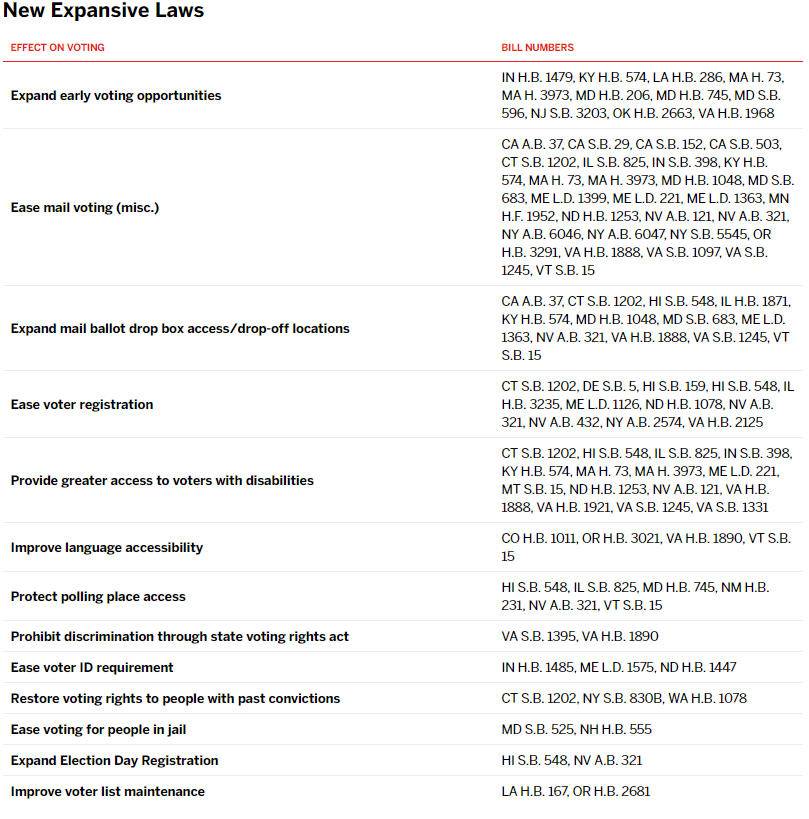Voting Laws Roundup: October 2021
By: The Brennan Center for Justice
In an unprecedented year so far for voting legislation, 19 states have enacted 33 laws that will make it harder for Americans to vote.
The 2020 federal election drew the highest United States’ voter turnout in more than a century, breaking records despite the Covid-19 pandemic and efforts to undermine the election process with the Big Lie of a stolen election.
In a backlash to this historic voter participation, many state lawmakers have proposed and enacted legislation to make it harder for Americans to vote, justifying these measures with falsehoods steeped in racism about election irregularities and breaches of election security.
In all but seven states, regular legislative sessions are now over. Between January 1 and September 27, at least 19 states enacted 33 laws that make it harder for Americans to vote.
At the same time, lawmakers in many states responded to Americans’ eagerness to vote by making it easier for eligible voters to cast their ballots. Between January 1 and September 27, at least 25 states enacted 62 laws with provisions that expand voting access.
But this expansive legislation does not balance the scales. The states that have enacted restrictive laws tend to be ones in which voting is already relatively difficult, while the states that have enacted expansive laws tend to have relatively more accessible voting processes. In other words, access to the right to vote increasingly depends on the state in which a voter happens to reside.
To continue reading this report visit The Brennan Center for Justice, a nonpartisan law and policy institute.

